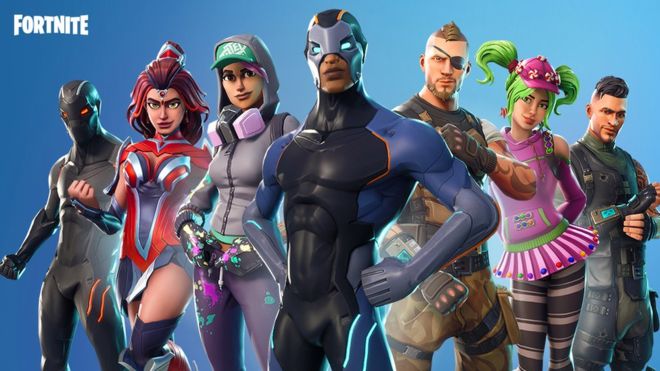Should Fortnite credit dances used in the game?
Published on: November 2, 2018

However, some other artists – including rapper 2 Milly – artists have accused Fortnite of stealing their dance moves.
Audiences have noticed some of the dances within the game appear to reference dance moves performed by famous hip-hop artists.
The developers of Fortnite, Epic Games, told the BBC they had no comment to make on the issue.
Dance steps such as Swipe It, originally known as the Milly Rock, and Hype, formerly known as Shoot, have been rebranded by Fortnite.
Drake’s Look Alive video – which features the Shoot dance – has accumulated 228 million views.
Michael Jackson, Snoop Dogg, and Alfonso Ribeiro (who played Carlton from The Fresh Prince of Bel-Air) have all been associated with dance moves within the game.
But none of these moves have been attributed. Should they be credited to the artists that made them famous?
Rapper 2 Milly, the creator of the Milly Rock, believes so, telling the Insider: “Instead of stealing these guys’ moves that they create and naming it something else, add their song… if you’re going to take someone’s craft and add billions of dollars to it, why not give them a great percentage?”
Since 2017, Fortnite’s revenue growth has earned its owner, Epic Games, over $1bn (£770m) in sale, according to Forbes.
Fortnite is said to have taken more money than some of last year’s biggest blockbuster movies, including Jumanji: Welcome to the Jungle and Spider-Man: Homecoming.
Although he is not directly affected, hip-hop artist Chance the Rapper has also commented on the issue – suggesting originators should get a share in the game’s profits.
The popular dances that characters perform are replicated online and accumulate millions of views on social media.
Josh Castle, from Streamers Connected, one of the world’s largest twitch (video game live streaming) communities, launched a viral video of a Fortnite-inspired dance competition.
Participants were able to win a virtual currency of more than 7,500 V-bucks.
Castle tells BBC News: “Footballers and NFL players are doing the dances on TV. Fornite is so mainstream, even if you don’t know it, you’re being exposed to it.”
Dominic Esprit, lead animator at Shoguns Animation, who specialise in character creations, says: “The dances are a key factor, as they have lead to audience based challenges, in which people copy the dances and upload them on to YouTube,” causing Fortnite to trend.
“No other game has had that kind of buzz.”
Omar Awua – hip-hop choreographer for the IMD Legion dance group – which has participated in shows such as Britain Got Talent and Got to Dance, says some artists do deserve royalties for their dance moves.
“It’s cheeky, they haven’t done it out of spitefulness, they’ve done it to push the game,” he says. “It’s a bit of a catch 22. Other dance games have been doing the exact same thing.
“Game companies have to be more respectful to people in the dance scene, they need to do more research as it could be seen as a form of stealing.”
He adds that “people are more upset because Fortnite have turned over a lot of money”.
“People now will think to copyright dance moves, because that move can go viral and by right if someone’s used it they deserve to get paid some sort of royalties.”
So are Fortnite helping music artists gain exposure to wider audiences by using their dances?
Ollie Ring, head of media and editor at Esports Insider, tells the BBC that, in the absence of a reference, you just wouldn’t know where a dance move came from unless you recognise it.
However, Ring adds, it could have some effect as once someone at school notices it they share it with all their friends and that does cause it to spread.
So – can you copyright dance moves?
Intellectual property lawyer and expert Shanti Sadtler Conway, who is based in the USA, tells the BBC: “Copyright laws do not protect any and all aspects of dance.”
However, artists regularly create songs where the lyrics explain how to perform specific dance steps, for example Silentó – Watch Me.
Which poses the question – if the song is copyrighted, are the dance moves, too?
Shanti explains that there may be separate copyrights related to a song as the law protects “musical works, including any accompanying words”.
Nevertheless, even if the lyrics relating to the dance moves are protected, that would not extend protection to the dance steps themselves.
The Copyright Office has been clear that “social dance steps and simple routines” are not protected by copyright law.






